
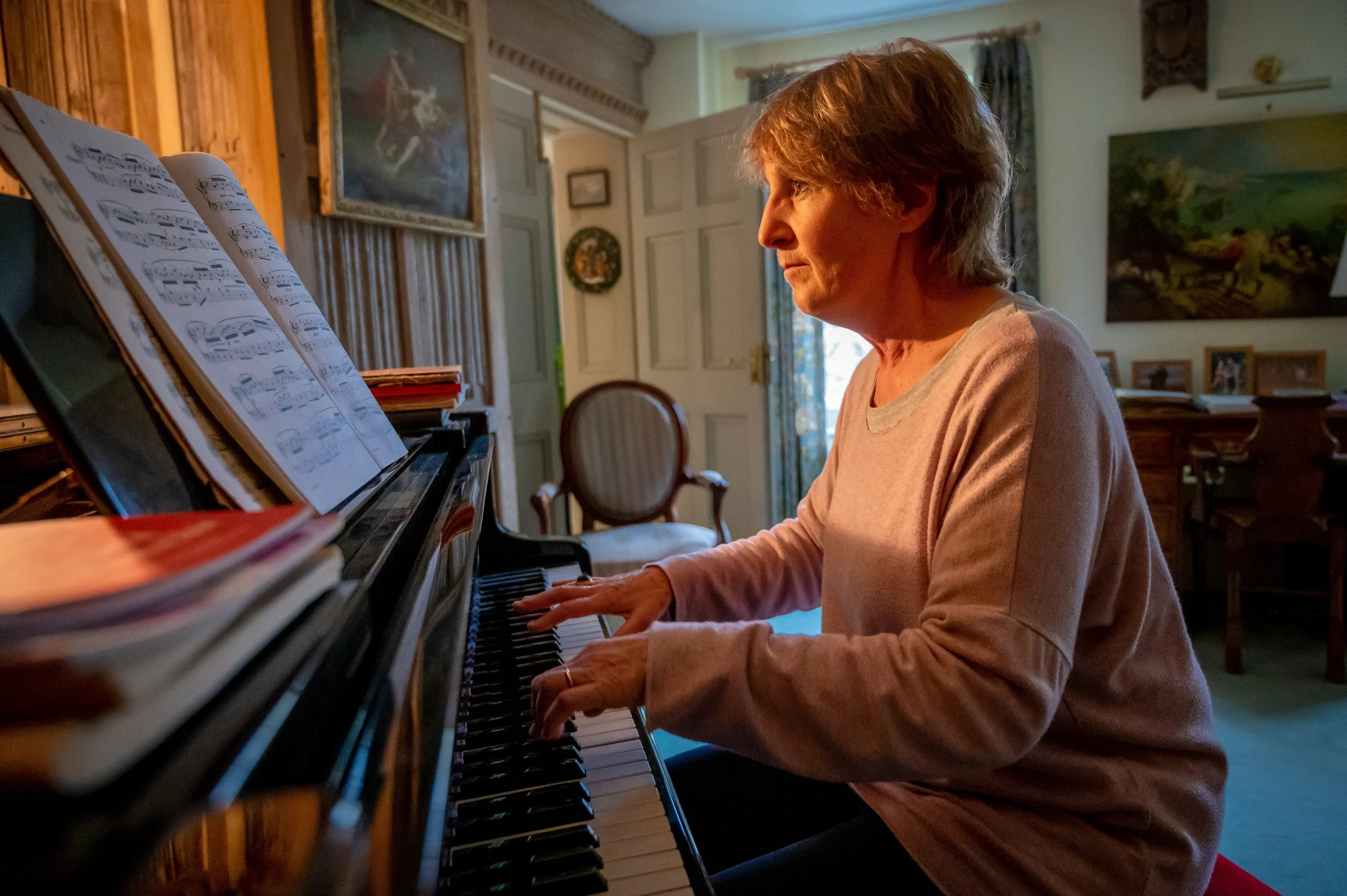
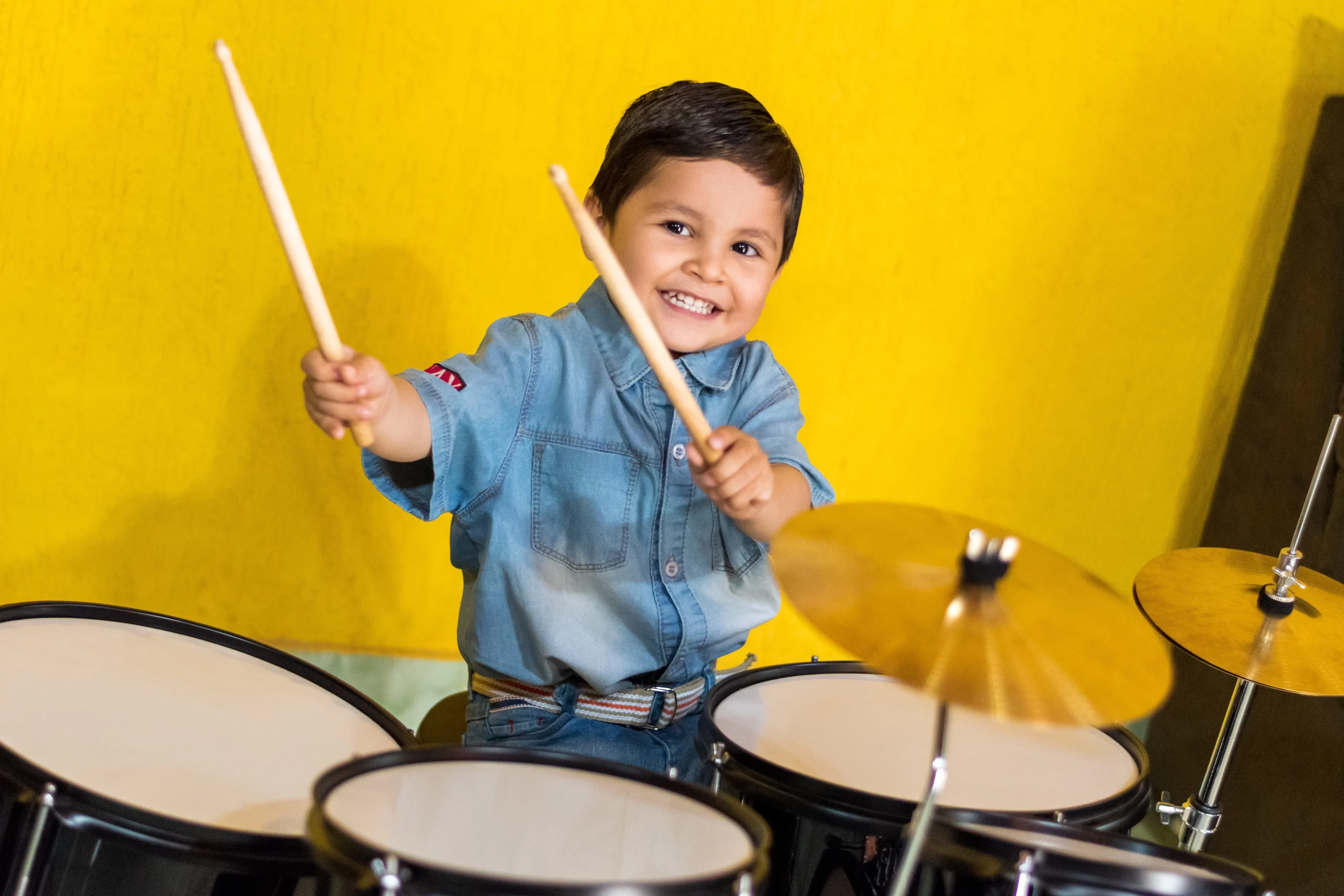
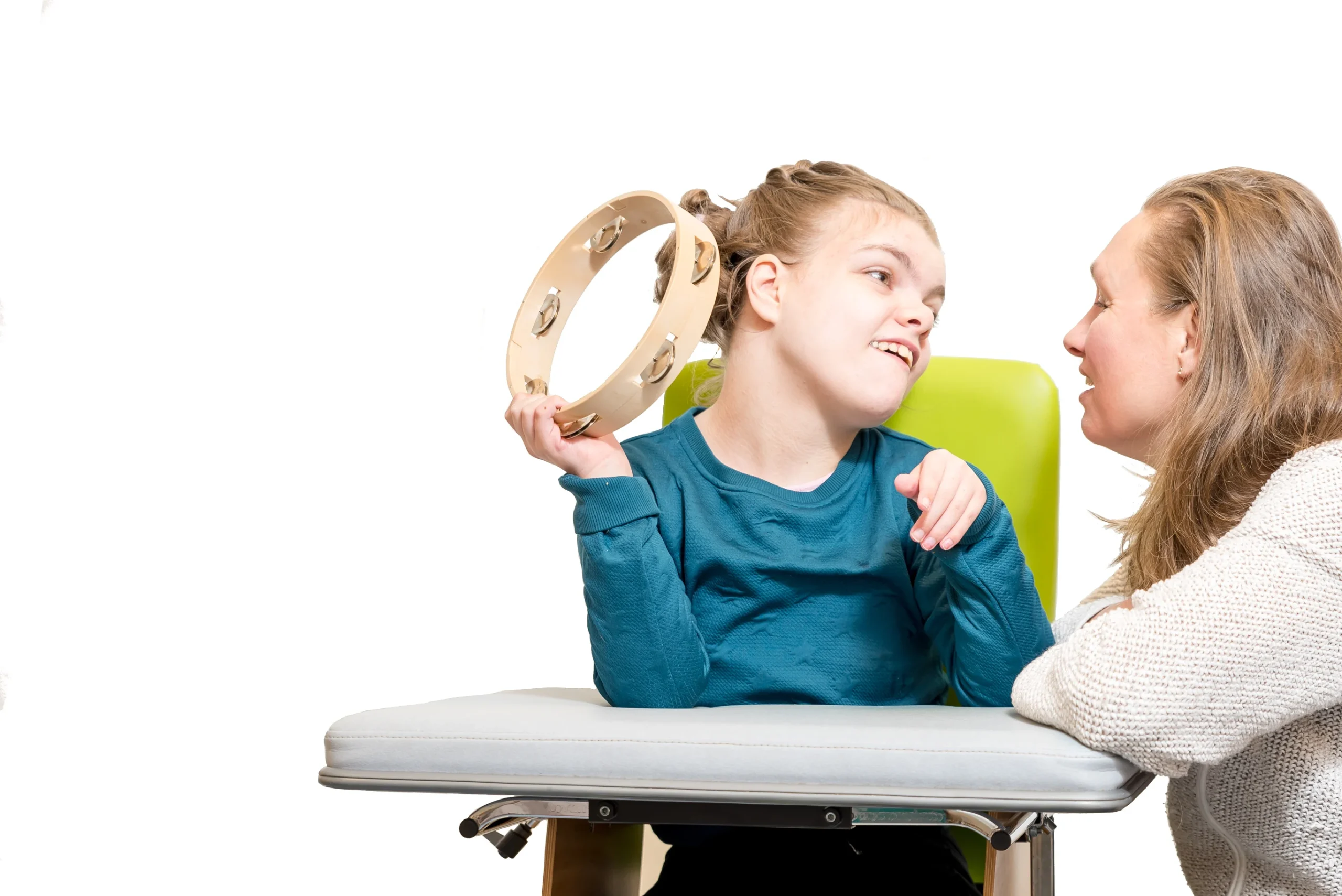
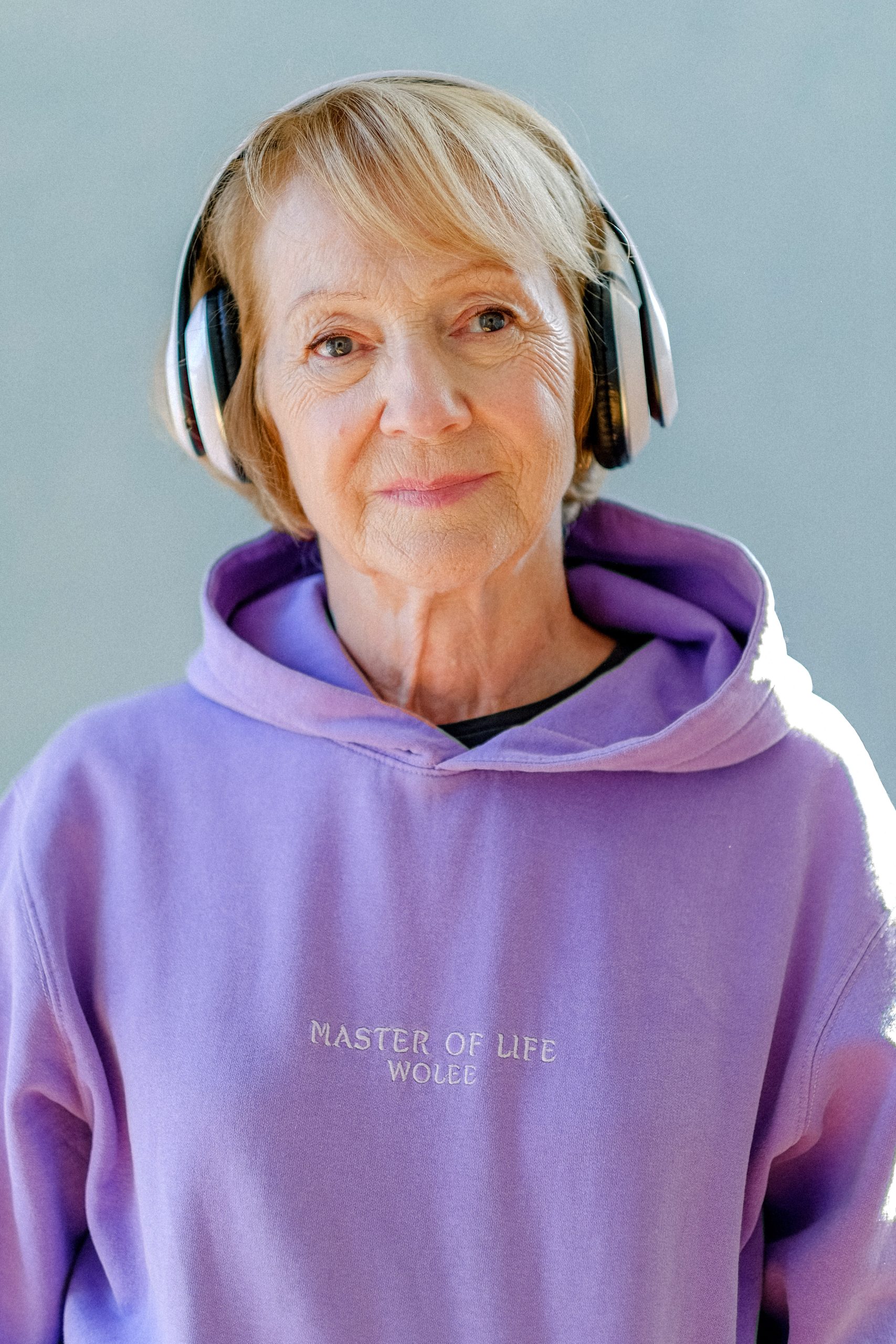
Music therapy is a research based practice and profession where we use music to actively support people as they strive to improve their health, capacity, functioning and wellbeing. Music therapy is different from music education and entertainment as it focuses on therapeutic outcomes rather than musical ones. Music Therapy is great for those with:
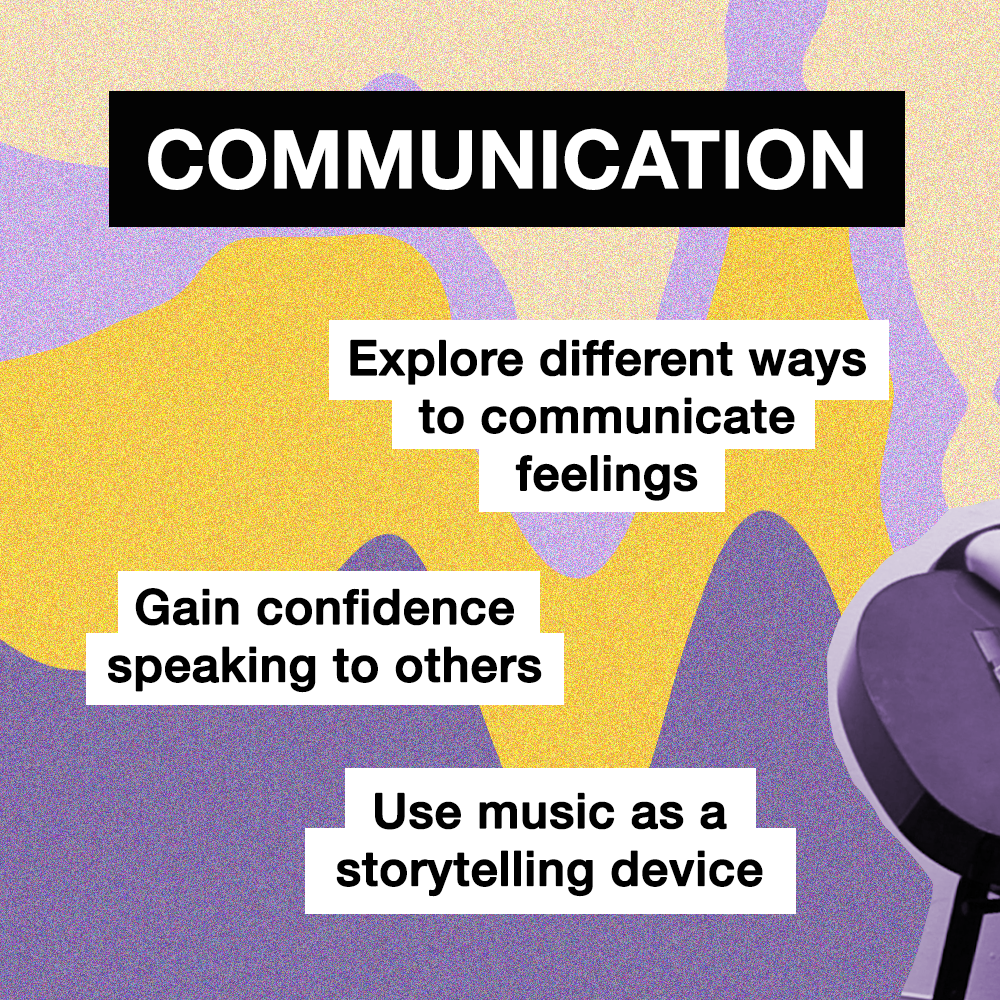
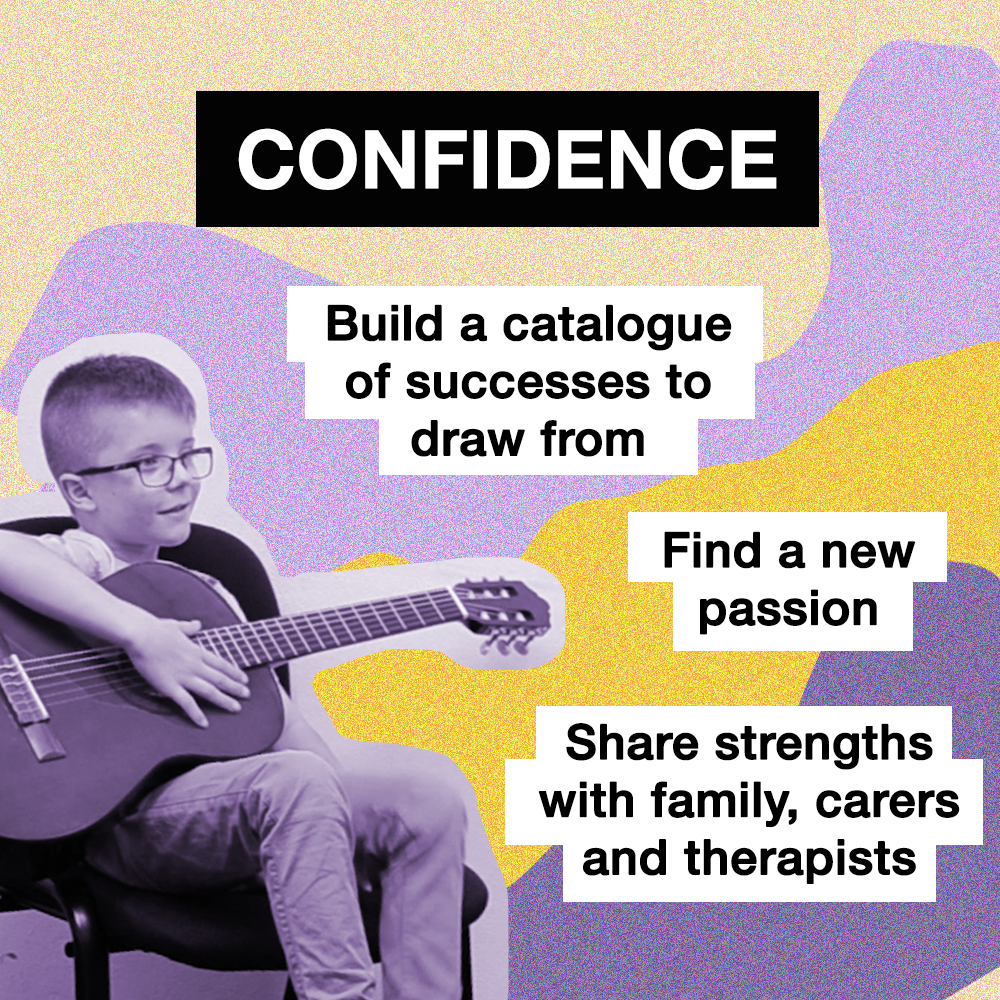
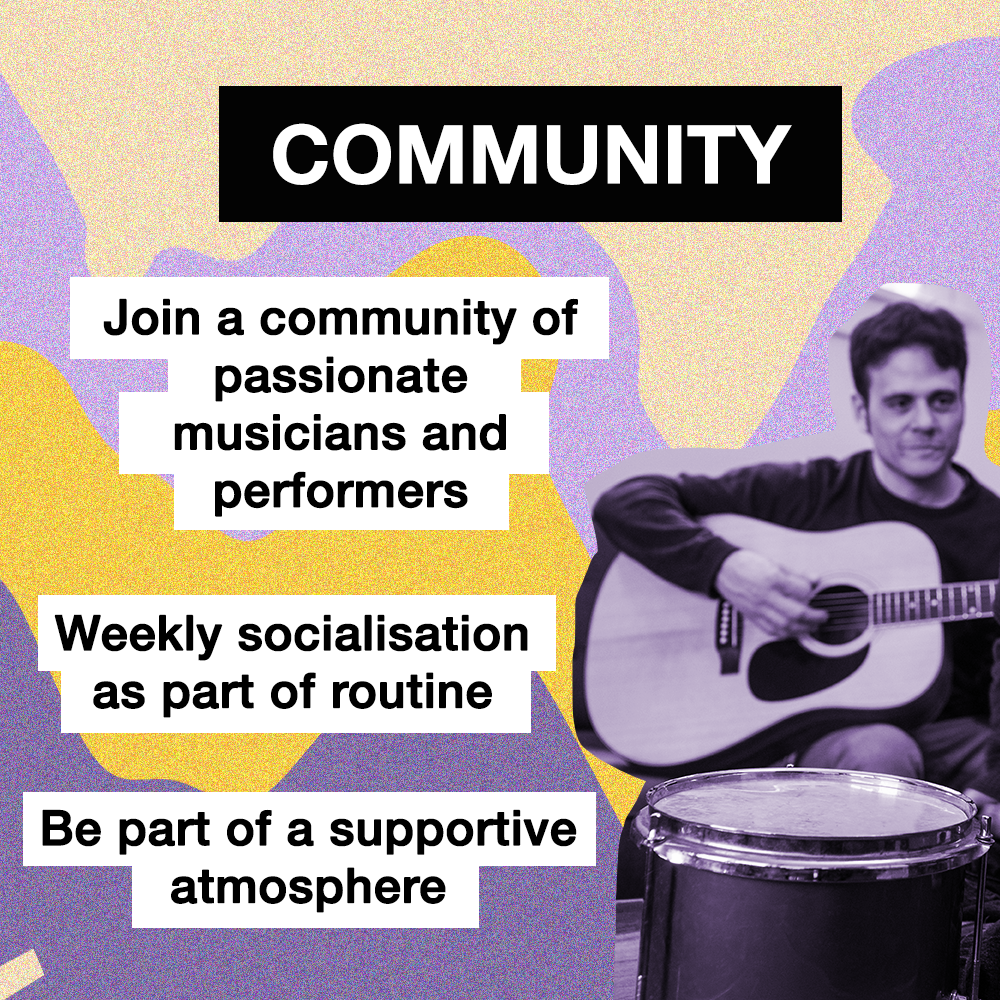
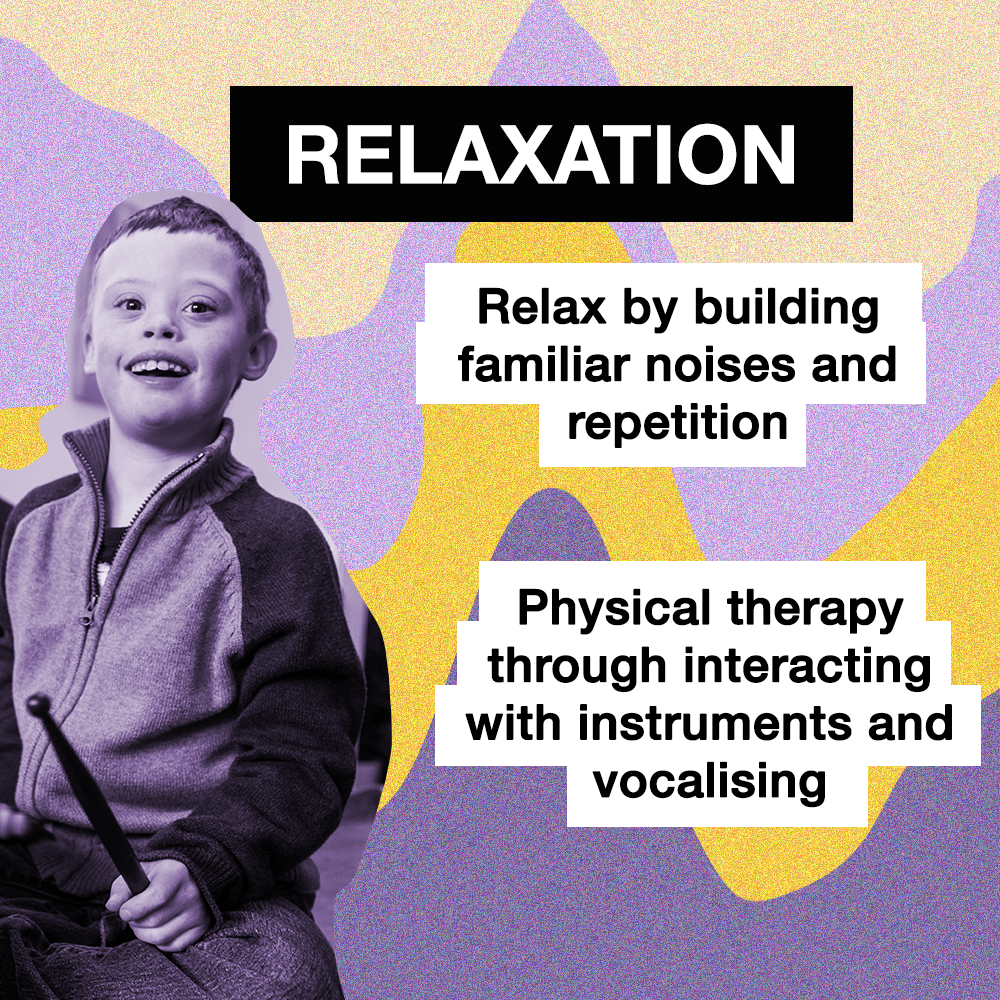
Hospitals
Aged Care Facilities (Care Homes etc)
Early Childhood Learning Centres (Daycare)
Mental Health Units
Group Homes
Interdisciplinary Health Settings
(If you are interested in our in-studio program click here)

We have been receiving great feedback from our consumers about the music therapy program here. The addition of the drumming sessions on Tuesdays have been great! The variety of session styles and the flexibility of the therapists has meant no two groups have been the same! Our consumers have made comment on how much they love the music and have even have had a few of the consumers walking away with a spring in their step!
Lyndal M
Nepean Hospital - Acute and Aged Care Unit
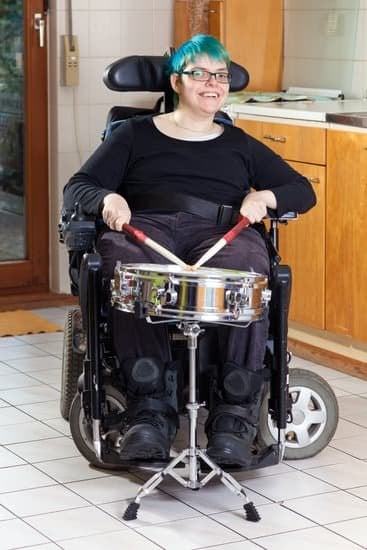
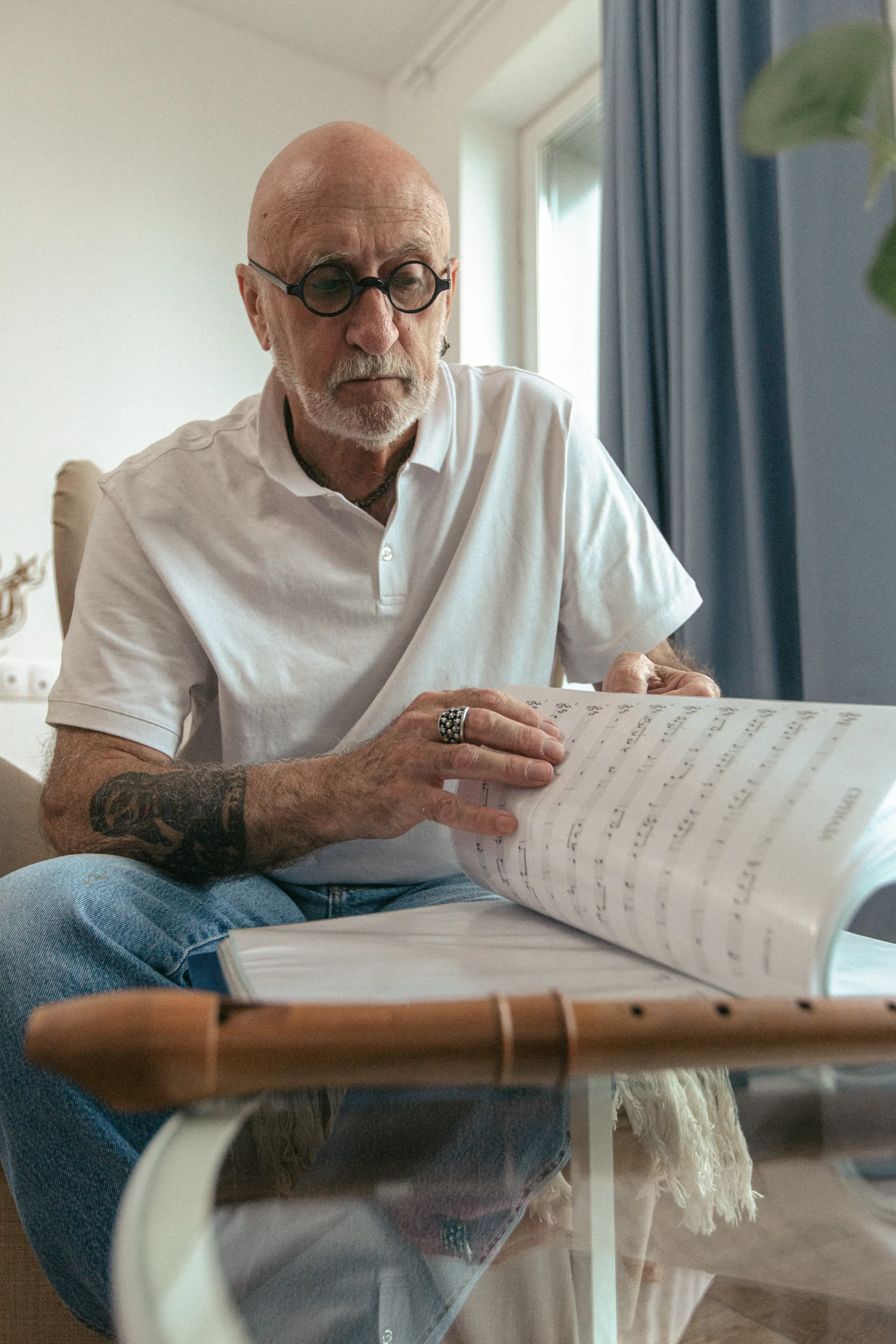
At the core of what we do is a simple and important idea - music is for everyone. Regardless of age, stage, ability, capacity or walk of life music can be experienced and enjoyed by all. Our purpose as musicians and music therapists is to bridge that gap and give participants the opportunity to experience music on their own terms. Our sessions are run in groups and tailored to the clients we are working with. These may involve group singing and instrument playing, performance, listening, dancing and movement, songwriting and more.
Music therapy is an NDIS recognised treatment and has seen significant interest and engagement in the past few years as the positive outcomes and results from participants roll in. All our sessions are facilitated by a registered music therapist (with the AMTA) with expertise in neuro diversity, aged care, social work, early childhood learning and more).
Music Therapy is covered by the NDIS for individual participants or can be charged to the venue/care home/centre. Costs will be in line with the NDIS Price Guide and will vary based on the needs of your participants and venue. As a guide, on average, we recommend a 45-60 group session per week which will be between $280 and $360.
Ask us today for a more accurate quote. tailored to your budget and needs
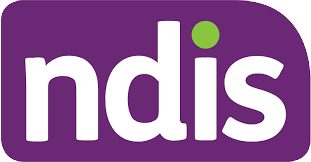
There is a large body of research that describes how music affects the brain and how music can assist individuals with special needs. Music activates many areas of the brain and has been found to positively affect development, learning and daily functioning. These functions include attention, listening, speech production, emotions, motor skills, memory, coordination and decision making.
For people whose disabilities are severe and profound, music therapy tends to address goals focused almost exclusively on interaction, communication, socialisation and physical needs. Research shows that using a person’s preferred songs can enable people with profound intellectual and multiple disabilities to improve their choice-making skills using non-verbal facial expressions and eye-gaze.